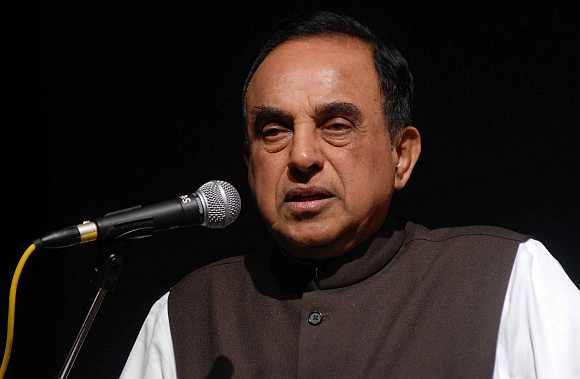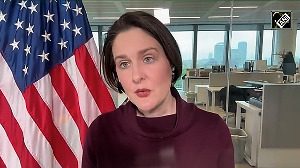 The Supreme Court on Friday allowed Bharatiya Janata Party leader Subramanian Swamy to intervene in the pending matters relating to the Ayodhya title dispute with his plea seeking construction of Ram temple at the site of demolished disputed structure.
The Supreme Court on Friday allowed Bharatiya Janata Party leader Subramanian Swamy to intervene in the pending matters relating to the Ayodhya title dispute with his plea seeking construction of Ram temple at the site of demolished disputed structure.
A bench of Justices V Gopala Gowda and Arun Mishra, while tagging Swamy's fresh plea with pending civil appeals, said that it cannot separately hear the petition seeking direction to allow construction of a Ram temple in Ayodhya at the site where the disputed structure was demolished in 1992 as a matter of fundamental right.
"Tag this matter with the pending civil appeals. Let parties be served with the copies," it said.
Swamy argued that the government has already given an affidavit that it would pave way for construction of the temple if there are evidence and moreover, there are findings of Archaeological Survey of India to this effect.
At the outset, the bench said that it cannot entertain the "writ petition" when the civil appeals are pending before it and Swamy should either move the high court for enforcement of his fundamental rights or seek impleadment as a party in the pending civil appeals here.
Swamy had earlier moved the plea for a direction to allow construction of Ram temple in Ayodhya at the disputed site and had mentioned it before a bench headed by Chief Justice T S Thakur for urgent hearing.
Swamy in his petition claimed that under the practices prevalent in Islamic countries, a mosque could be shifted to any other place for public purposes like constructing road etc, whereas a temple once constructed cannot be touched.
"A temple and a masjid cannot be considered on par as far as sacredness is concerned. A masjid is not an essential part of Islam religion, according to the above majority judgment of a constitution bench of the Supreme Court, whereas according to the House of Lords, U K (1991), the temple is always a temple even if in disuse or ruins.
"Thus, the fundamental truth is that the Ram temple on Ram Janmabhoomi has an overriding claim to the site than any mosque," Swamy claimed in his plea.
Swamy has also sought directions to expedite the disposal of several petitions challenging the Allahabad high court verdict of three-way division of the disputed Ram Janmabhoomi-Babri Masjid site in Ayodhya on September 30, 2010.
While ordering status quo at the site, which means that prayers at Ram Lalla's make-shift temple at the disputed site in Ayodhya would go on as usual, the apex court had restrained any kind of religious activity on the adjacent 67 acres of land which had been taken over by the centre.











 © 2025
© 2025